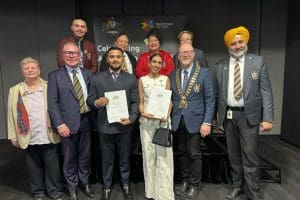Like many, I have been shocked at the voracity of opinions – both for and against – relating to tennis player Novak Djokovic’s visa situation. For me (not even a tennis fan – give me cricket any day!), the hoo-hah has escalated to the point that the actual issues have become submerged into a sea of vitriol and emotion, in most cases far removed from the actual issues in contention.
Sweeping the detritus aside, underneath it all, what can we learn from the ‘saga’?
Australia has a system of laws – created by a democratically elected parliament – which provide a framework within which decisions by governments and authorities are made.
In the migration sphere, this allows for the assessment and processing of an applicant’s visa application pursuant to rules (sometimes clear and sometimes not so clear, at which point courts can step in to provide a binding interpretation – read more about the separation of powers in our constitutional democracy here.
Prior to the Migration Reform Act (1992) which came into effect in 1994, migration decision making was based more on subjective assessments and discretionary powers than on a set of clear guidelines. The new framework made migration decisions easier, fairer and more certain, benefitting both applicants and decision makers.
This was a turning point in migration decision-making and in political will. No longer were the ‘dictation test’ and ‘white Australia policy’ applied at the decision-maker’s whim. Rather, decision makers were required to assess applications against a set of published criteria. English language ability was measured by a test, not a conversation with a case officer. Skills are now assessed by appropriate industry bodies and experts, not by case officers with no particular knowledge of the occupational area.
For applicants, decisions made within this framework must be clear and address the relevant criteria. Where the decision has not been made according to the legal framework then applicants have the ability to challenge the decision. This is not an unusual occurrence. The Department of Home Affairs even has a process for applicants to notify it of alleged unlawful decisions so that they may – where that unlawfulness is accepted by the Department – vacate the decision and replace it with a lawful decision. Other options available to applicants include going to review at the AAT where arguments on both fact and law can be made – or the Courts where arguments must be framed in terms of legal error.
But let’s return to the tennis and Novak Djokovic.
Many have commented that, in relation to the ‘first’ of his visa cancellations, ‘he got off on a technicality’. But so-called ‘technicalities’ are the mortar that holds together the bricks in the wall of justice. If these technicalities are not respected and applied, then it is tantamount to throwing the migration reforms mentioned above out the window, along with fair play and justice.
Residual discretionary power does still remain with the Minister for Immigration, as we have seen with the second-time-around cancellation of Mr Djokovic’s visa. This use of non-appellable discretionary power is also not unusual. It is frequently used by Ministers in cases in which applicants have been successful at appeal, most notably in citizenship and character cases. Think back to the many examples of ex-‘criminals’ released from prison only to be nabbed by migration officers and scuttled out of the country, despite having lived most of their lives in Australia. The Minister’s use of discretionary power is very broad but must relate to ‘the public interest’ .
There is movement for the Minister’s powers to be expanded to the point where the public interest is what the Minister says it is. If we don’t like the existence of this residual power, then it is up to us to use our democratic powers to advocate for change.
Where an applicant wishes to dispute the outcome, he will find a Minister’s personal decision is very difficult to challenge.
We must accept that – especially in high profile or controversial cases or those that fit into a specific political agenda – such decisions will continue to be made (whether fair or unfair) and we can only ensure that the power to make them has been used lawfully.
I have always believed that Boundaries show us the Pathway of Possible. A stickler for the rules, I believe in fair play for all.
But that does not mean that I will not push up against those boundaries where a client’s application demands it. This has led to success for many Aspire Australia clients, whether providing new interpretations of legislation or challenging the ‘ultra vires’ nature of the Department’s own policies and interpretations. This is our bread and butter. To know the legislation inside and out. To provide accurate advice to clients and to assist them to achieve their dreams of living and working in Australia whether via a clear pathway or one with hurdles, as long as the outcome is achieved within the legal framework.
And we expect decision-makers to play by the same rules.
Whilst the umpire’s decision is final, the ball is your court to ensure that the decision is correctly made.
Game, Set, Visa.









